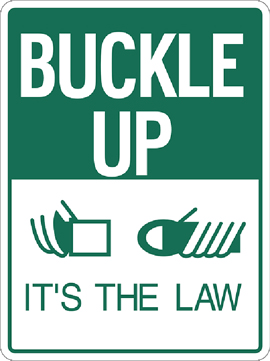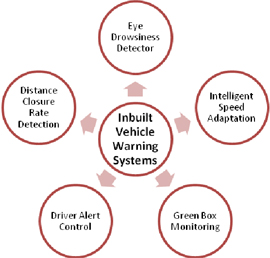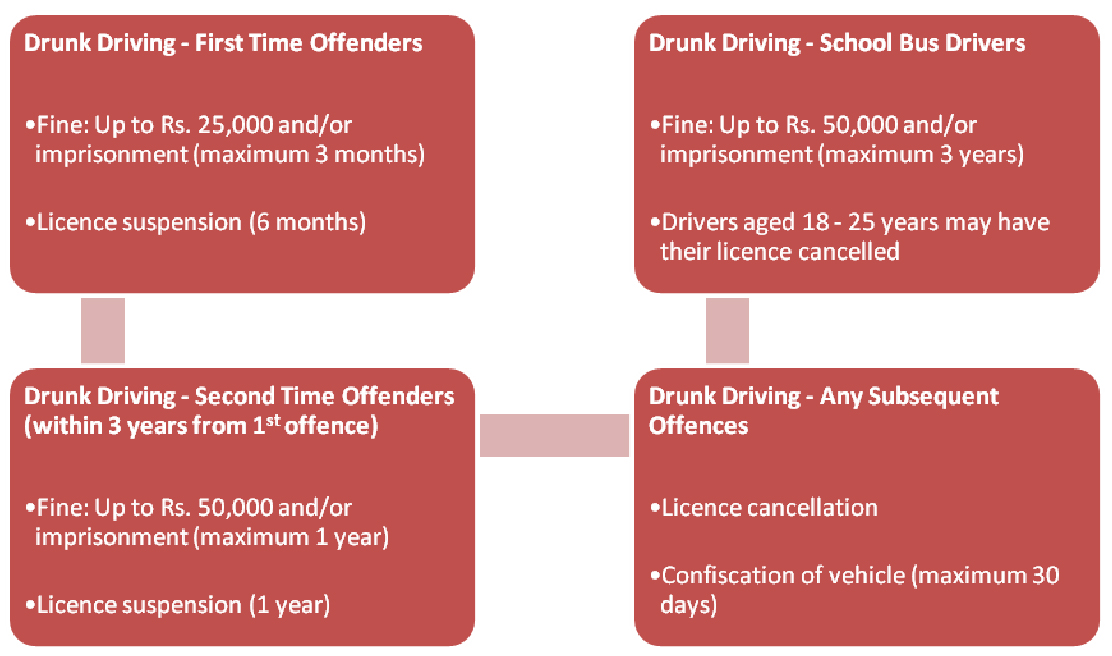
What is the Road Transport and Safety Bill (RTSB)?
The Ministry of Road Transport and Highways (MORTH) has recently drafted a bill for enhancing transport and safety of Indian roads. This draft bill, if passed by the Parliament, will replace our existing Motor Vehicles Act (1988).
RTSB proposes to encompass all aspects of driver's safety, vehicle norms, and road infrastructure.
What is Unique about this Draft Bill?
RTSB is an initiative by the new government to tackle the alarming state of affairs of Indian roads. The bill aims to drastically reduce the number of road accidents over the next five years through effective governance of law, enforcement of rules, and novel ideas of road safety.
Some of the unique features of the draft bill are:
Road Accidents in India
- 5 Lakh reported annually
- 1.38 Lakh fatal accidents in 2012
- 8 - 9% increase in fatal mishaps on highways (in last two decades)
- NDTV news and Deccan Herald
-Global Reference: The draft bill takes into account the best practices from existing road safety policies of six foreign countries - USA, Canada, Singapore, Japan, Germany and UK.
-Centralized Systems: RTSB proposes a common system for registration of vehicles. It also proposes to have a single policy for freights and a single authority for road transport in India (National Road Transport & Multinational Coordination Authority)
-Precedence: Prior to the RTSB, three earlier documents were drafted in India:
Vision of the Road Transport and Safety Bill (Draft), 2014 "To provide a framework for safer, faster, cost-effective and inclusive movement of passengers and freight in the country, thus enabling the mission of Make in India"
- As mentioned in the Draft by the MORTH
1. Motor Vehicle Act Amendments drafted by Sundar Committee in 2011
2. Traffic Management and Safety Board Bill of 2012
3. Report on Road Transport by Rakesh Mohan Committee in March 2014
The current draft of RTSB has been prepared by incorporating suggestions from all three reports.
-Safety Equipments: The draft bill aims to regulate installation of safety equipments in motor vehicles that guide the driver on speed and awareness. This can be crucial in averting mishaps.
What Does The Draft Bill Propose?
The draft bill proposes to employ the following international road safety best practices and policies:
 p style="TEXT-ALIGN: justify; PADDING-BOTTOM: 5px; PADDING-LEFT: 5px; PADDING-RIGHT: 5px; FONT-FAMILY: arial; FONT-SIZE: 12px; PADDING-TOP: 5px">-Inbuilt Vehicle Warning Systems: The draft bill proposes to leverage state-of-the-art warning systems that reduce probability of an accident manifold:
p style="TEXT-ALIGN: justify; PADDING-BOTTOM: 5px; PADDING-LEFT: 5px; PADDING-RIGHT: 5px; FONT-FAMILY: arial; FONT-SIZE: 12px; PADDING-TOP: 5px">-Inbuilt Vehicle Warning Systems: The draft bill proposes to leverage state-of-the-art warning systems that reduce probability of an accident manifold:
1 Eye Drowsiness Detector - Detects and triggers an alarm if the driver is drowsy
2 Intelligent Speed Adaptation (ISA) - Checks the speed limit and warns if it is breached
3 Driver Alert Control (DAC) - Monitors vehicle movement and sounds an alarm on inconsistent or haphazard driving
Distance Closure Rate Detection, Green Box Monitoring, and other smart detection systems are also suggested in the draft bill.
-Zero Duplicity: The ministry envisions a single-point issuance of licences through use of biometric systems to ensure zero duplicity.
-Seat Belts Regulations:
Did You Know? The last amendment in Motor Vehicles Act, 1988 was done in the year 2001. .
The draft bill reinforces the age-old safety measure by seeking to make it mandatory for both drivers and passengers.
-Safety Rules for Infants and Children: The draft bill proposes that children aged below 8 years should not be allowed to travel in the front seat of a vehicle.
-Penalties and Punishments:
-Golden Hour Policy: Road accident victims have high survival rates if emergency treatment is administered within an hour of the accident (golden hour). The draft bill seeks to provide medical attention to victims within this crucial period.

-Information Sharing: For better governance, an electronic system to detect driving offences and to share information (vehicle identity, venue of offence, previous records, etc.) across traffic control portals is proposed.
-Motor Accident Fund: An insurance fund that financially safeguards all 'road-users' of India is proposed.
-No Tolerance for Drunk Driving: RTSB aims to convey this message through stringent penalties for drivers who flout the rule.

While the draft RTSB looks promising, we can only hope that our law enforcers are as proactive and efficient as our policy makers. What remains to be seen is whether the bill can usher in a sea schange on Indian roads. Click hereto view the entire draft of RTSB.








